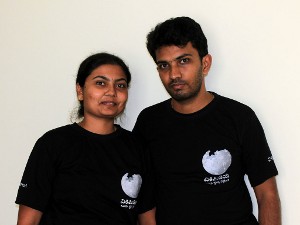FOSS Week in Review
Is Microsoft reading your Hotmail?
Last week we learned of the arrest of Alex Kibkalo, a Microsoft employee who’s charged with leaking an unreleased version of Windows 8 to a French blogger. According to Wired, during the course of an internal investigation in Redmond, an unidentified source approached Steven Sinofsky, who was then president of Microsoft’s Windows Division.
“The source gave Sinofsky a Hotmail address that belonged to the French blogger (also not named) and said that the blogger was the person who had received the leaked software. Microsoft had already been interested in the blogger, but apparently, after the tip-off, the company’s security team did something that raised alarm bells with privacy advocates. Instead of taking their evidence to law enforcement, they decided to search through the blogger’s private messages themselves. Four days after Sinofsky’s tip-off, Microsoft lawyers ‘approved content pulls of the blogger’s Hotmail account,’ the court filings state.
“By trolling through the Hotmail email messages and MSN Messenger instant message logs, Microsoft learnt how Kibkalo and the blogger pulled off the leak, says Federal Bureau of Investigation special agent Armando Ramirez III, in an affidavit filed in connection with the case. Microsoft handed over the results of its investigation to the FBI in 2013, and Kibkalo was arrested on Wednesday.”
This, of course, created quite a stir among privacy advocates. So much so that the folks in Redmond on Thrusday announced a change of policy when it comes to riffling through people’s Hotmail accounts. They’re still going to do it, but in the future the company will publish stats regarding its breaking into people’s free Hotmail accounts. In other words, we’ll know just how much they do it.






 It appears that the police in Tallahassee, Florida have been busy tracking folks by their cell phones without bothering to show up before a judge and ask for a warrant. Why would they violate the constitutional rights of their citizens this way? Evidently because they were using technology on loan and had signed a non-disclosure agreement.
It appears that the police in Tallahassee, Florida have been busy tracking folks by their cell phones without bothering to show up before a judge and ask for a warrant. Why would they violate the constitutional rights of their citizens this way? Evidently because they were using technology on loan and had signed a non-disclosure agreement.